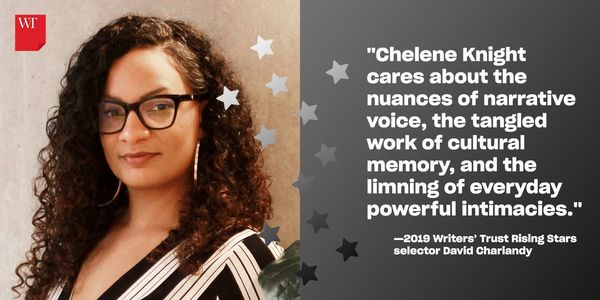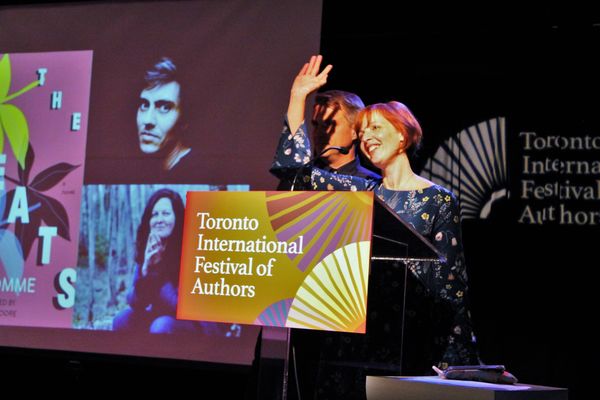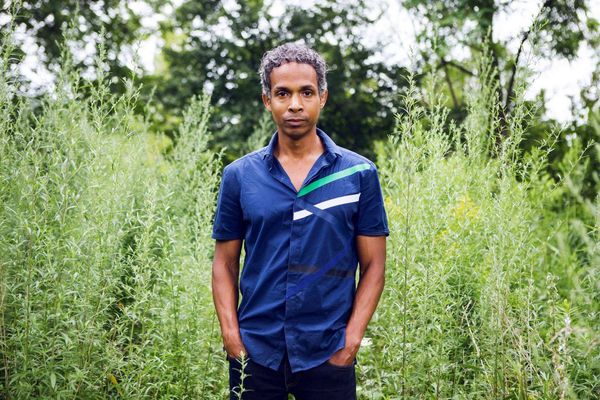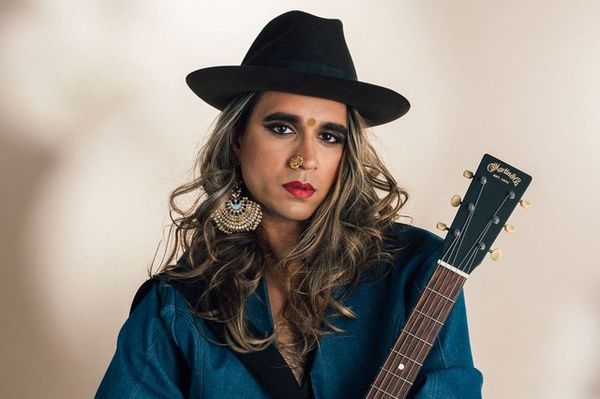The Need for More Non-Traditional Mentorship in Canadian Publishing
By Chelene Knight
When I was in school, the act of reading books was just that, reading books. I wasn’t categorizing them. I wasn’t thinking about publishing, editors, marketability, or whether or not a book was considered diverse. And although I was pretty keen on writing and editing back then, I wasn’t entirely certain I would end up writing books. But I think that if I had learned a bit about the industry early on (ie introduced to the industry by way of a mentor), I would have been better equipped and a lot more versed in how to search out these opportunities that seemed to be so far and few between, and hidden. In my early 20’s I had no idea what the publishing process looked like. I considered myself to be in the dark about how difficult it would be to learn about it if you weren’t connected to a traditional educational stream, and definitely not in the cards for me at the time.
When my first book was published, I found myself staring into a deep and dark void. I could barely see two steps in front of me. But like most new authors I had very little insight into what the publishing industry looked like from the inside or who the major players were. I went in blind and for the most part unprepared, but eager to write myself in. My first publisher, Mona Fertig (Mother Tongue Publishing) was a gracious and unexpected mentor. She sensed my apprehension and tried to offer me bits and pieces of what to expect from the book production process like how editing would work and options for design. She often said how important it was to have “thick skin” once my book was launched, and I definitely appreciated hearing her this. She was my first informal publishing mentor.
I’ve always considered myself a sponge. Eager to learn as much as I could without being intrusive or sucking up folks’ time. With my second book, publisher Hazel Millar at Book*hug was another informal mentor who was very open about production and often shared critical insights about what her job looked like, just because she could tell that I was interested in learning. When publishers take time out of their already busy days to demystify the industry and shine a bit of light down that tunnel of uncertainty, it goes above and beyond the trajectory of the author’s book itself, the author’s career benefits.
Fellow writer David Chariandy also took it upon himself to offer up as much advice as he could about the industry and was open and honest enough to share is own publishing journey to help guide me in the decisions I would be faced with when my third book (a novel) launches next year. These industry insights are crucial to my own longevity as a writer. The more I prepared myself, the better.
Fast-forward ten years from the first time I published something, and now that I am working in the industry as an author, editor, consultant, and mentor, I realize that none of these non-traditional mentors had to take the time to walk me through the processes. I found a real interest in substantive editing because of my early interactions with Mona Fertig, a desire to work directly with publishers because of Hazel Millar, and a newly found confidence navigating the industry as a writer because of David Chariandy’s offer of support and display of mutual respect. For the first time, I felt like the playing field was level. These are the non-traditional routes. I do not hold a publishing degree or an MFA. But I have just as much, if not more, experience in the industry because of the various routes and risks I’ve taken.
In 2019, I was a recipient of the Writers' Trust Rising Star prize, a multi-faceted career development program that recognizes talented authors in the early stages of their careers. What impressed me about this remarkable program, was that there was a heavy focus on long-term mentorship and professional development, something I had not seen many other prize organizations offer. Not only was I set up with solid one-on-one time with the established writer who selected me for the prize, but included in this fantastic package was a HarperCollins round table discussion at their headquarters in Toronto. Surrounded by publishers, editors, and marketing experts, I was offered a literal spot at the table to ask questions and get really straight-forward honest answers. And although this was one of the best and most genuine publishing experiences I have had to date, it got me thinking: these opportunities need to happen more often and organically. Who currently holds the space in the publishing world and for how long? How can we start offering more seats at the table? Someone shouldn’t have to win a major prize to be included.
Systemic barriers and socioeconomic factors play a role in not only who has access to these opportunities, but for how long they can hold on to them. What about those new writers who’ve been working hard in entry-level positions in the industry as community builders, activists, and running non-profits? What about those who have invested so much more in the community, have their finger on the literary pulse, and have gained the trust of those in the community? At what point do we start to value experience as much as we do education? These are serious and essential questions to be asking and conversations to be having because no matter what stream of mentorship you take, you still aren’t guaranteed a spot.
Yes, there are plenty of internship opportunities out there for folks who are fully entrenched in a full-time accredited publishing program, but what about those who choose another route? What are the non-traditional mentorship opportunities, and how to folks find out about them? I tend to ask a lot of questions because I am often forced to come up with my own answers. The reason I started my own business was two fold: 1. I wanted to replicate some of the experiences and share the things I’ve learned through these non-traditional routes. and 2. I knew that because of the heavy emphasis on holding a degree in publishing or the arts, that the only way for me to begin to bridge these gaps was to create my own position/s in the industry.
Through my writing studio, I offer up exactly what was offered to me via mentorships, long-term workshops, manuscript consults, and publishing consulting, while creating a community of deep-thinkers, stellar writers, and eventual community builders. I took this one step further and built an author care consultancy from the ground up, and surrounded myself with authentic communicators, and outside-the-box thinkers.
What I learned over the course of the last decade, was eye-opening to say the least. So many of us enter into the industry with a pocket full of assumptions because so much of the information is inaccessible from the outside, and that’s all we have to start with. In other words, if you are not sitting at the table, no one can going to offer you a plate; you aren’t going to eat. How do the gaps in the industry create barriers? How do these gaps and oversights continue to affect marginalized emerging writers and would-be editors and publishing professionals?
Your CanLit News
Subscribe to Open Book’s newsletter to get local book events, literary content, writing tips, and more in your inbox
With focus on diverse books and diverse writers starting to come to light, we need to look at the folks sitting in the decision-making chairs. And we know how white the Canadian publishing industry is, and it is not only a Canadian problem. But how many Canadian POC agents are there to acquire books? How many POC editors are there in publishing houses working directly with marginalized writers? When I first heard about Vivek Shraya’s new imprint, VS Books, through Arsenal Pulp Press I was so excited. Here was another non-traditional mentorship and publishing opportunity created for BIPOC writers, something so desperately needed.
It is indeed the responsibility of publishing houses to make sure they are hiring POC acquisition editors and that there are clear steps outlined for career advancement. It’s not supportive to offer spots that go nowhere. It’s very clear that there needs to be a certain level of responsibility to be honest with those hired. These mentors need to map out a clear path to higher positions and not block them when they get there. In my opinion, this is the role of a real publishing ally.
Although I would like to think we are making some solid changes as an industry, many publishers, and other organizations tend to speak surfacely about diversity (a word even I struggle to use because of how undefinable it can be) but we are not looking at who we put in positions of power. Who are the acquisitions editors? Are we looking at experience over education? how are we encouraging diversity at an executive level? And how are we creating visibility showing that this exists? How are we creating transparency about the industry to demystify these professions?
As someone who has climbed and climbed, and fell many times, I looked closely at who handed me their ladder and I paid special attention to those who shared with me their instructions on building it.
I am constantly asked by friends, family and colleagues why it seems like I am always working. And why I am constantly creating new ways to work with writers. My answer is that I have to. There is no one path and there can’t be. When I think about diversity, inclusion, and non-traditional routes, it stretches far beyond the books we publish and the folks who hold the space to make these books a thing. With the ever-evolving ways in which we all define our own choices to think deeper and listen better, I think about what Ivan Coyote said in their memoir, Rebent Sinner about their definition of diversity: “I want to flip the word “diversity” over and look at its underbelly. I want to start talking more about reality. I want to talk about what we are really talking about. I want to talk about what it costs marginalized voices when we step up to write or speak to an audience that often does not include many faces or bodies that look like ours.”
Writing myself into the narrative was one of the most difficult things I’ve had to do and there are still folks who don’t get and those who do not listen or really hear me, and that’s ok. I’ll continue to seek out the non-traditional, break the rigid templates, and redefine the undefinable as much as I can. The industry is in dire need of change, there’s no debating that. But the more we talk about our own personal journeys, roadmaps, and ways for inserting ourselves into these narratives, the more we will see the gaps close, the light shift, and that seat at the table finally visible.
The views expressed by Open Book columnists are those held by the authors and do not necessarily reflect the views of Open Book.
Chelene Knight is the author of the poetry collection Braided Skin and the memoir Dear Current Occupant, winner of the 2018 Vancouver Book Award. Her essays have appeared in multiple Canadian and American literary journals, plus the Globe and Mail and the Toronto Star. Her work is anthologized in Making Room, Love Me True, Sustenance, The Summer Book, and Black Writers Matter.
The Toronto Star called Knight, “one of the storytellers we need most right now.” In addition to her work as a writer, Knight is managing editor at Room, programming director for the Growing Room Festival, and CEO of #LearnWritingEssentials. She often gives talks about home, belonging and belief, inclusivity, and community building through authentic storytelling.
Knight is currently working on Junie, a novel set in Vancouver’s Hogan’s Alley, forthcoming in 2020.






